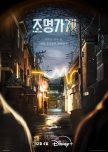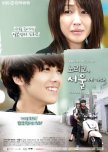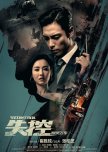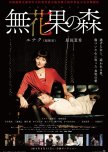Discussions récentes


“Black Knight” is a love story between a woman who is waiting for the love of her life and a man who is willing to do anything to protect his love. The story spans over two hundred years. Moon Soo Ho is a businessman with a pure heart, but he never shows his true colors to anyone except for Jung Hae Ra, a travel agent who has never traveled abroad. Soo Ho and Hae Ra grew up like siblings in Hae Ra's house, but they got separated later. They meet each other after they grow up and love approaches them as if it were fate. Will their love survive despite all the faltering events?


The series follows the story of a group of strangers who are all having a hard time processing a horrible experience from their past. Each of them is going about their normal lives when they are all strangely pulled to a light shop located at the end of a dubious alleyway. A cautious shopkeeper guards the light shop, which may contain the key to the strangers' pasts, present, and futures.


The series follows the story of a group of strangers who are all having a hard time processing a horrible experience from their past. Each of them is going about their normal lives when they are all strangely pulled to a light shop located at the end of a dubious alleyway. A cautious shopkeeper guards the light shop, which may contain the key to the strangers' pasts, present, and futures.


The series follows the story of a group of strangers who are all having a hard time processing a horrible experience from their past. Each of them is going about their normal lives when they are all strangely pulled to a light shop located at the end of a dubious alleyway. A cautious shopkeeper guards the light shop, which may contain the key to the strangers' pasts, present, and futures.


A romantic film about a man struggling with a painful past as he tries to move forward, only to discover that the woman in his present life has an uncanny connection to his past. Together, they navigate the complexities of love, heartbreak, and healing, all against the backdrop of cultural and identity differences in the foreign city.


A romantic film about a man struggling with a painful past as he tries to move forward, only to discover that the woman in his present life has an uncanny connection to his past. Together, they navigate the complexities of love, heartbreak, and healing, all against the backdrop of cultural and identity differences in the foreign city.


A romantic film about a man struggling with a painful past as he tries to move forward, only to discover that the woman in his present life has an uncanny connection to his past. Together, they navigate the complexities of love, heartbreak, and healing, all against the backdrop of cultural and identity differences in the foreign city.


A romantic film about a man struggling with a painful past as he tries to move forward, only to discover that the woman in his present life has an uncanny connection to his past. Together, they navigate the complexities of love, heartbreak, and healing, all against the backdrop of cultural and identity differences in the foreign city.


A romantic film about a man struggling with a painful past as he tries to move forward, only to discover that the woman in his present life has an uncanny connection to his past. Together, they navigate the complexities of love, heartbreak, and healing, all against the backdrop of cultural and identity differences in the foreign city.


A romantic film about a man struggling with a painful past as he tries to move forward, only to discover that the woman in his present life has an uncanny connection to his past. Together, they navigate the complexities of love, heartbreak, and healing, all against the backdrop of cultural and identity differences in the foreign city.


A romantic film about a man struggling with a painful past as he tries to move forward, only to discover that the woman in his present life has an uncanny connection to his past. Together, they navigate the complexities of love, heartbreak, and healing, all against the backdrop of cultural and identity differences in the foreign city.


A romantic film about a man struggling with a painful past as he tries to move forward, only to discover that the woman in his present life has an uncanny connection to his past. Together, they navigate the complexities of love, heartbreak, and healing, all against the backdrop of cultural and identity differences in the foreign city.


A romantic film about a man struggling with a painful past as he tries to move forward, only to discover that the woman in his present life has an uncanny connection to his past. Together, they navigate the complexities of love, heartbreak, and healing, all against the backdrop of cultural and identity differences in the foreign city.


A romantic film about a man struggling with a painful past as he tries to move forward, only to discover that the woman in his present life has an uncanny connection to his past. Together, they navigate the complexities of love, heartbreak, and healing, all against the backdrop of cultural and identity differences in the foreign city.


A romantic film about a man struggling with a painful past as he tries to move forward, only to discover that the woman in his present life has an uncanny connection to his past. Together, they navigate the complexities of love, heartbreak, and healing, all against the backdrop of cultural and identity differences in the foreign city.


